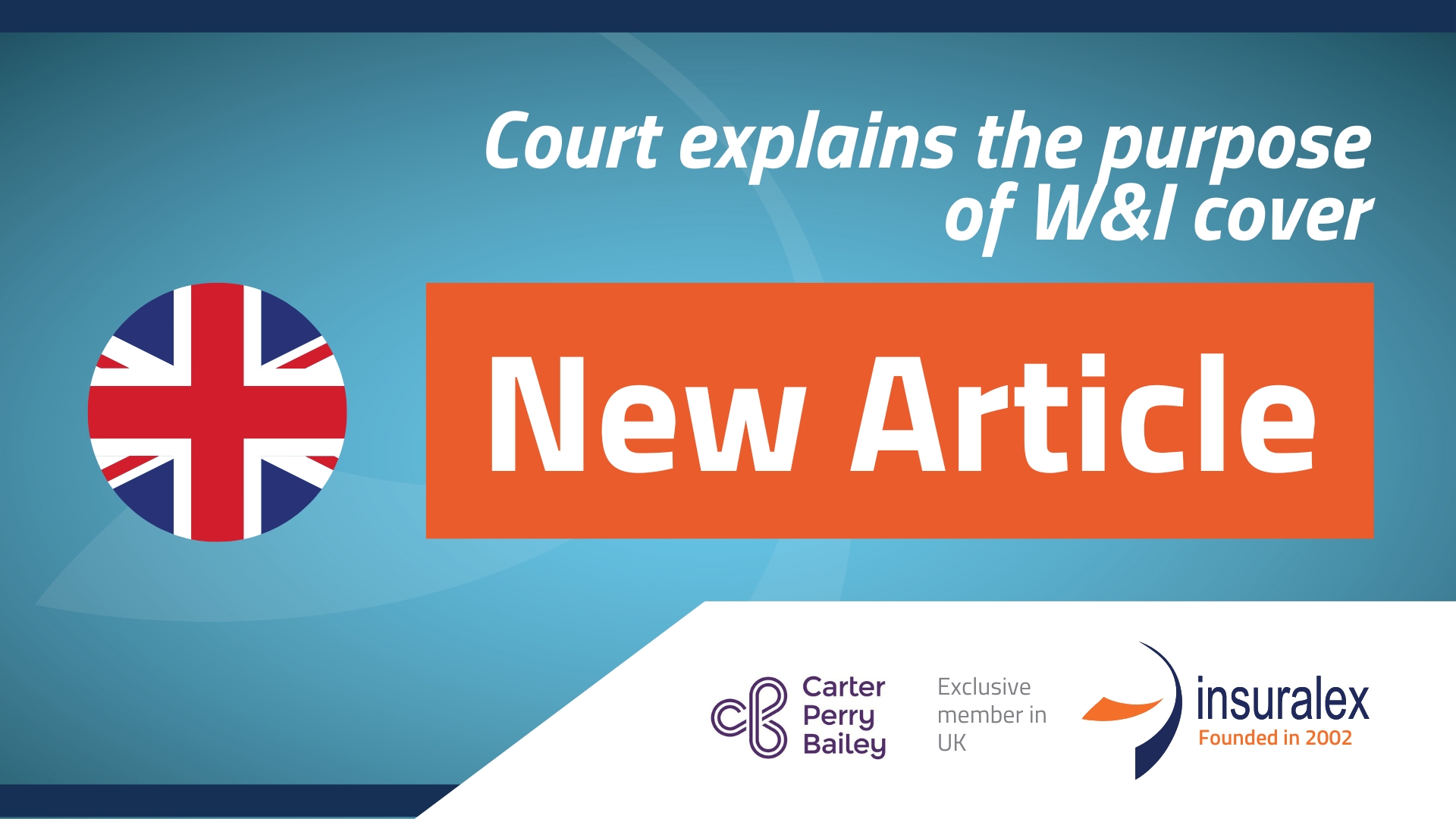
Buyer denied cover after specialty bakery merger turned sour …
Background
The Commercial Court recently considered a claim made against a Buyer’s Side Warranty and Indemnity Policy in Finsbury Foods Plc v Axis Corporate Capital Ltd & Ors [2023] EWHC 1559 (Comm).
Finsbury Food Group Plc (“Finsbury”) – a speciality bakery manufacturer – wanted to expand on the growing ‘Free From’ baked goods market. To achieve this, it proposed a merger with an existing producer by way of a written proposal in April 2017 to Ultrapharm Limited (“Ultrapharm”) – a specialist manufacturer who Finsbury considered produced the best tasting gluten free bread.
Negotiations spanned more than a year before the parties entered into a Sale and Purchase Agreement (“SPA”) on 31 August 2018. This included a Trading Conditions Warranty (“TCW”), which essentially provided:-
- That there had been no material adverse change in the trading position of Ultrapharm or in its turnover; and
- A separate TCW that there had been no loss of a customer representing more than 20% of Ultrapharm’s total sales, and
- A separate Price Reduction Warranty (“PRW”) that Ultrapharm had not offered or agreed to offer ongoing price reductions or discounts which would result in an aggregate reduction in turnover of more than £100,000 or would otherwise be reasonably expected to materially affect the profitability of the company.
The accounts date of 31 December 2017 applied in respect of all warranties.
The SPA included a Knowledge Exception to the effect that the warrantor (Ultrapharm) would not be liable to the extent the Buyer (Finsbury) had (i) actual knowledge of the circumstances of such warranty claim and (ii) is actually aware that such circumstances would be reasonably likely to give rise to a warranty claim.
On the day of the SPA, Finsbury also took out a Warranty and Indemnity Policy with the Defendant insurers, under which the insurers agreed to indemnify Finsbury for “monies which [Finsbury] is legally entitled to claim against the Sellers and/or Warrantor…”
The obligation to provide indemnity was amongst others subject to the exclusion of ’Known Issues’ i.e. losses arising out of “… any Breach in respect of which any Transaction Team Member had Actual Knowledge prior to the Commencement Date”.
The alleged breaches of warranty
Upon the merger completing, Finsbury made a claim against the insurers, pleading that Ultrapharm was in breach of the warranty for two reasons:
- A change of recipe was agreed between Ultrapharm and one of their major customers (M&S) in June 2017, but with effect from late December the same year, which impacted adversely on profitability (in breach of the TCW); and
- A price reduction agreed with M&S in October 2017, but effective after 31 December 2017, was in breach of the PRW.
On the first issue, the recipe was changed in respect of two products with a 14% and a 9.5% impact on profitability. The Court rejected that this constituted a breach of warranty for three reasons:
- The Recipe Change was agreed before the Accounts Date and came into effect a few days before this. In any event, the judge agreed with insurers that Ultrapharm’s trading position changed from the date the change was agreed – not the date this came into effect.
- The judge rejected insurers’ submission that a material adverse change should exceed 20% of total group sales. This was based on a figure provided in a separate TCW. On the facts, the judge found that a material adverse change is one which exceeds 10% of the financial position or turnover of Ultrapharm. Finsbury did not produce evidence as to the overall impact. However, the isolated impact in respect of the two specific products were 14% or 9.5%. The judge was satisfied this would not be near the threshold.
- Finally, the judge agreed with insurers that recipe changes are in any event part of the ordinary course of a bakery business, which do not, without more, fall within the ambit of the TCW.
As to the price reduction in alleged breach of the PRW, the judge again found in favour of insurers’ argument that the relevant point in time for the purpose of the warranty is the date on which the price reduction was agreed – not the date from which it became effective.
For the above reasons, the Court held Ultrapharm had not breached any warranties such that the claims under the W&I policy failed.
Knowledge Exception
Having found in favour of insurers on the issue of breach, the Court decided to comment on the Knowledge Exception and the Knowledge Exclusion although it was not necessary to do so.
On the facts, the Court was satisfied that even if Finsbury had not pieced information known to them together to appreciate the commercial consequences of those circumstances, it had been aware of / had access to the data showing those changes being agreed. Although the judge accepted Finsbury did not have express awareness of the impact at the time, this was because the relevant persons did not give the issue any particular thought. Had they done so, the Court agreed with insurers’ submission that Finsbury had been provided with sufficient data to deduce this, such they had knowledge of the circumstances.
Causation
Finally, the Court found that Finsbury was unable to prove it had suffered any loss, as it would not have walked away from the deal. No attempts were made to reduce the price and the conduct of the parties suggested that Ultrapharm would not have accepted a lower price even had it been asked.
CPB Comment
The decision in Finsbury is significant as it provides useful guidance on the interpretation of W&I policies – which seldom fall to be considered by the Courts. Insurers will welcome the case and its conclusion that W&I is not intended to be a remedy for a buyer that carries out inadequate due diligence in such a commercial setting.
Ultimately, and whilst this is often said, whilst the decision provides some useful guidance on key concepts, and how those may be viewed by the Courts, the interpretation will always be fact sensitive.
August 2023
Any questions
If you have any questions regarding the issues highlighted in this article, please get in touch with Helen or Lisbeth.
You can also review a range of articles on similar insurance and reinsurance topics in the Publications section of our website.
Helen Tilley
Partner
T: 0203 697 1910
M: 0750 182 5588
E: helen.tilley@cpblaw.com
LinkedIn
Lisbeth Poulsen
Solicitor / European Qualified Lawyer
Lawyer
T: 0203 697 1905
M: 07823 467563
E: lisbeth.poulsen@cpblaw.com
LinkedIn





